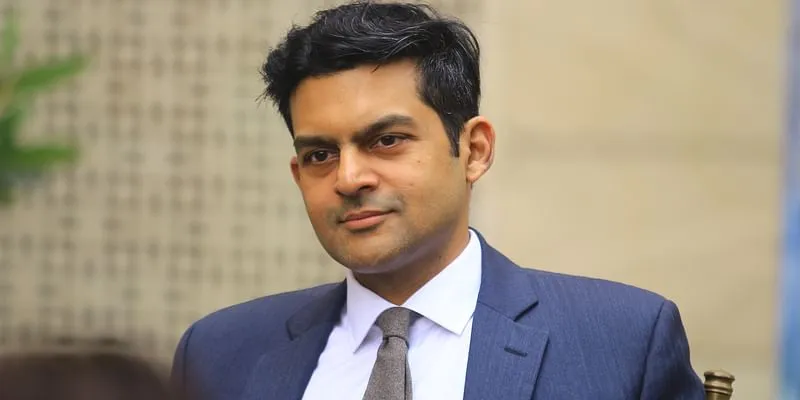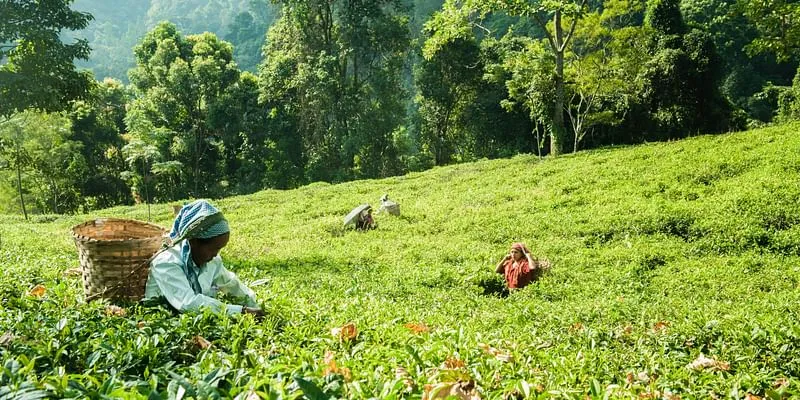Vocal for local in 1917: How a freedom fighter during Satyagraha Movement built a tea brand that dominates internationally
Started as a move to make India free from the British Raj, Luxmi Group has a legacy of over 100 years. The company not only became one of the largest tea producers in India — producing 30 million kg annually — but also has a strong presence globally.
During the Satyagraha Movement in 1917 when India was under British Raj, not many people distinguished themselves in business due to the outcrying policies by the British and the political unrest.
In 1917, the tea industry was predominantly British-owned. The tea estates were in India but were not bringing revenue to India.
Seeing such a miserable condition of the country, where one had to plead for their own rights, PC Chatterjee, who was part of the Satyagraha Movement, decided to expand and diversify Luxmi Tea (he founded as a small business in 1912) as a part of the Indian movement for self-reliance.

Rudra Chaterjee, Managing Director, Luxmi Group
In an interaction with SMBStory, Rudra Chatterjee, Managing Director of Luxmi Group, narrates the company’s journey and says,
“My grandfather was a freedom fighter. He founded this company as a tool for Satyagraha. However, the first tea estate was not in British India but it was founded in the land which belonged to the Maharaja of Tripura and he started promoting the tea from this estate as the Swadeshi Tea.”
Headquartered in Kolkata, Luxmi Group is one of the largest tea producers in India and produces around 30 million kilograms of tea annually. There are more than 20,000 workers working with Luxmi Group.
The Satyagraha Movement
Every tea blend produced by Luxmi Group has a story to tell. From Raja Singh - King of Punjab blend, who helped cement the popularity of the green tea, to Queen Elizabeth blend that was gifted to Her Majesty by Prime Minister Narendra Modi on his visit to Buckingham Palace in 2015; every packet of tea produced has a history.
“With a tract of land in Tripura he received as a gift from the Maharaja, my grandfather began to cultivate tea independently, without management agencies or advisors from London. Little did he know the extraordinary legacy that he would create and set into motion with Luxmi,” Rudra tells SMBStory.
Other members of the Indian freedom movement, particularly Assamese and Bengali students who also rebelled against the British rule, joined Luxmi, which was then referred to as Indian Tea and Provisions. What started as an expression of freedom from the British Raj has now come to stand for the freedom of spirit.
Luxmi Group boasts of having one of the best tea estates in the world, including Makaibari in Darjeeling — the oldest tea factory to produce one of the first organic teas which is fetched the highest price in the history of Indian teas.
Rudra says the company does not only have a rich heritage and large production record but also produces the finest tea in the world.
Expanding and diversifying
What started as a business in Tripura now has a global footprint with 25 tea estates in Uganda, and other parts of Africa. Gisovu tea estates in Rwanda, owned by the business, produces one of the best teas of Africa, regularly clocking at the top position in auctions across Africa. In Assam, Luxmi Group owns tea estates like Moran and Narayanapur. The company also owns tea estates in Darjeeling.

Tea manufacturing unit in mid 1920s
Luxmi Group exports tea to different parts of the world, with a major market in England and Japan. Rudra says,
“We sell to some of the international tea brands. In India, all tea served in Oberoi Hotel are by Luxmi Group. We even supply to The Marriot among other hotel chains.”
The company also sells its teas through its own website for consumers in India.
In a span of over a century, the company has diversified its business. Luxmi Group recently acquired OBEETEE, one of the leading global names in hand-woven carpets, from Edward Oakley. The company also ventured into building townships in Siliguri called Uttarayan, after which it ventured into the furniture business by founding Manor and Mews, in the US.
Challenges and the competition
The tea industry is facing several challenges with climate change being one of the most threatening as it impacts the crops every year, says Rudra. The issues of poor quality tea also plague the industry.
“The number of poor quality teas are increasing as there are many brands that resort to selling such low-quality tea. The good quality tea producers are becoming endangered. It is a very challenging environment where prices are low, costs are going up and climate change is adding to it,” he adds.
The tea industry values at $55 billion globally. It is the most consumed beverage in the world after water, and Luxmi Group differs itself by producing quality tea. Right from the farm to cup, Luxmi Group focuses on making sure that the seven tea blends that they possess must all have all a unique quality of the region they belong to.
Key milestones and the way forward

Makaibari Tea Estate
Talking about the key milestones in the business, Rudra says that founding the company in the atmosphere of so much resistance in 1917 was in itself an achievement. Along with this, he says having Assamese and Bengali freedom fighters join the company, and making tea in a completely different way than the British was significant.
“We didn’t have visiting agents or managing agencies coming over and guiding us. In 1990, when my father Dipankar Chatterjee took the company on an expansion path, acquiring tea estates in Narayanpur with many other tea estates in Assam, and then acquiring Makaibari and going international in Rwanda, helped us achieve milestones throughout,” he says.
Moving forward, Rudra says that focus will be on the digital business as the businesses are now bound to go digital. He says the company will focus on the ways to expand on the internet.
Edited by Kanishk Singh









